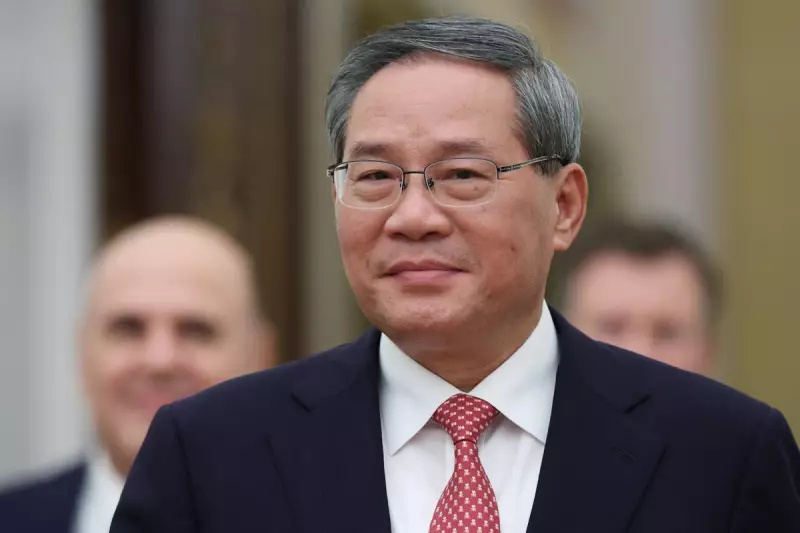
Chinese Premier Li Qiang has commenced a significant two-day visit to Zambia, with a primary focus on revitalising a major Cold War-era railway project. The $1.4 billion refurbishment is strategically aimed at enhancing China's access to the landlocked nation's abundant critical minerals.
A Strategic Investment in African Infrastructure
The centrepiece of the high-level discussions is the upgrade of the Tazara railway line. This vital link connects Zambia's lucrative mining heartlands to the Tanzanian port of Dar es Salaam on Africa's east coast. The project will be executed by the state-owned China Civil Engineering Construction Corporation, following a formal agreement signed by China, Zambia, and Tanzania in September.
Premier Li, who holds China's second-highest leadership position, is scheduled to meet with Zambian President Hakainde Hichilema on Thursday. The Zambian presidency confirmed that the two leaders will oversee the signing of documents to officially commence the ambitious upgrade.
Historical Roots and Modern-Day Rivalry
The Tazara rail line is a project steeped in history. It was originally constructed in the 1970s through a collaboration between the three nations. Its purpose was to provide an alternative trade route, avoiding dependence on transport links through what was then Rhodesia and apartheid-era South Africa.
Today, the railway has regained immense strategic importance, finding itself at the heart of a new geopolitical contest. This revival comes in direct response to a United States-backed initiative to construct a rival railway from Zambia and the neighbouring Democratic Republic of Congo to Africa's Atlantic coast in Angola. That project gained significant momentum last year following a visit by then-US President Joe Biden.
These two railways—one channelling trade east to Chinese partners, the other west to Atlantic ports—epitomise the growing competition between Washington and Beijing for control over the supply chains of critical minerals. These resources are essential for manufacturing everything from renewable energy technology and electric car batteries to advanced defence systems.
China's Dominance in the African Minerals Race
China has established a dominant position in the mining sectors of both Zambia and the Congo. Zambia is one of the world's top copper producers, a metal integral to all modern electronic devices. This new railway investment solidifies China's leading role in the global race for these indispensable resources.
In a bid to counter its economic rival, the US administration under President Donald Trump has been actively working to increase American supply chains for these very minerals. Premier Li's visit to Zambia is part of a broader trip that will conclude with his attendance at the Group of 20 summit in Johannesburg, South Africa. Notably, the United States is boycotting this summit, the first to be held on African soil, due to President Trump's criticisms of the South African government.





